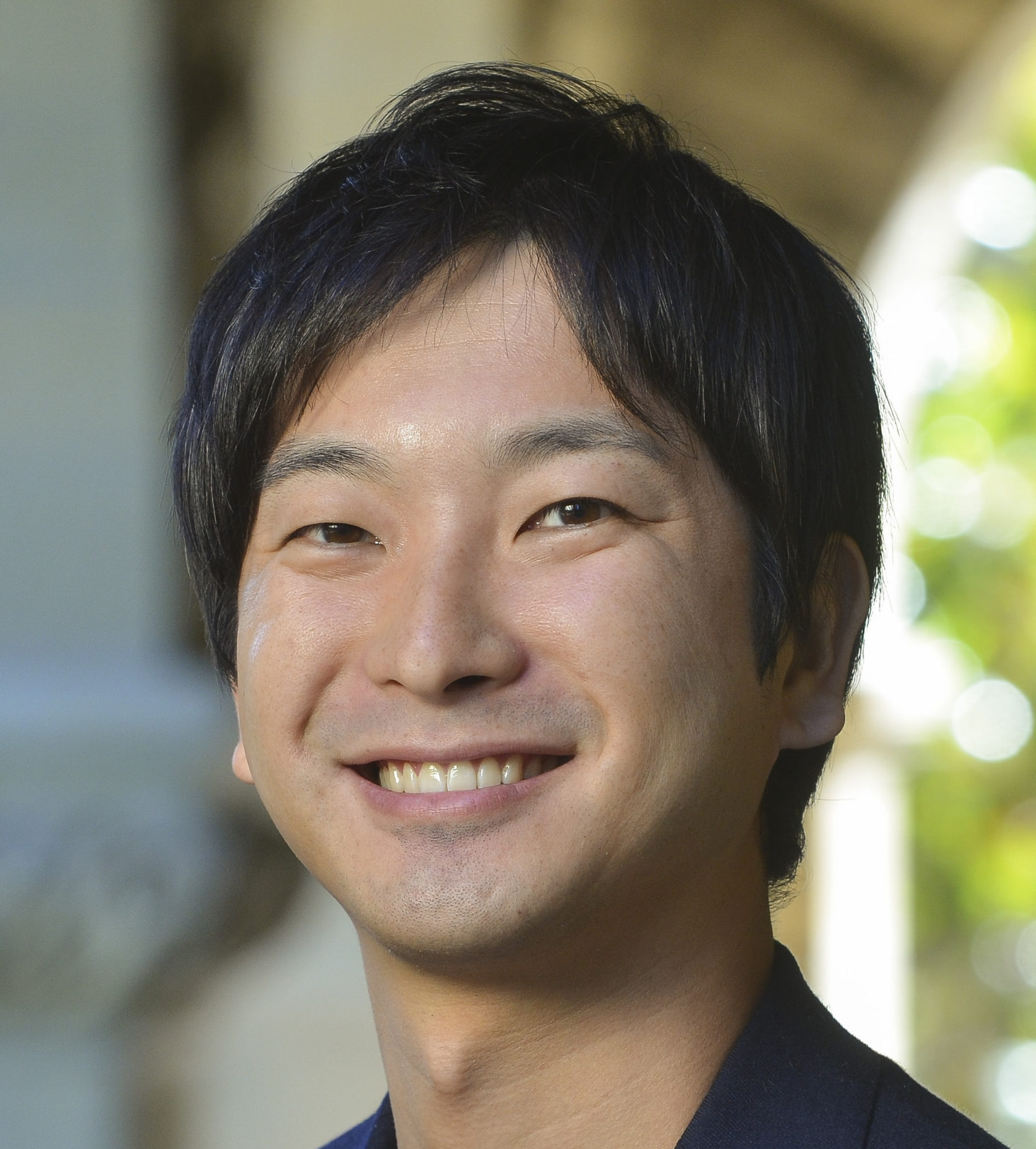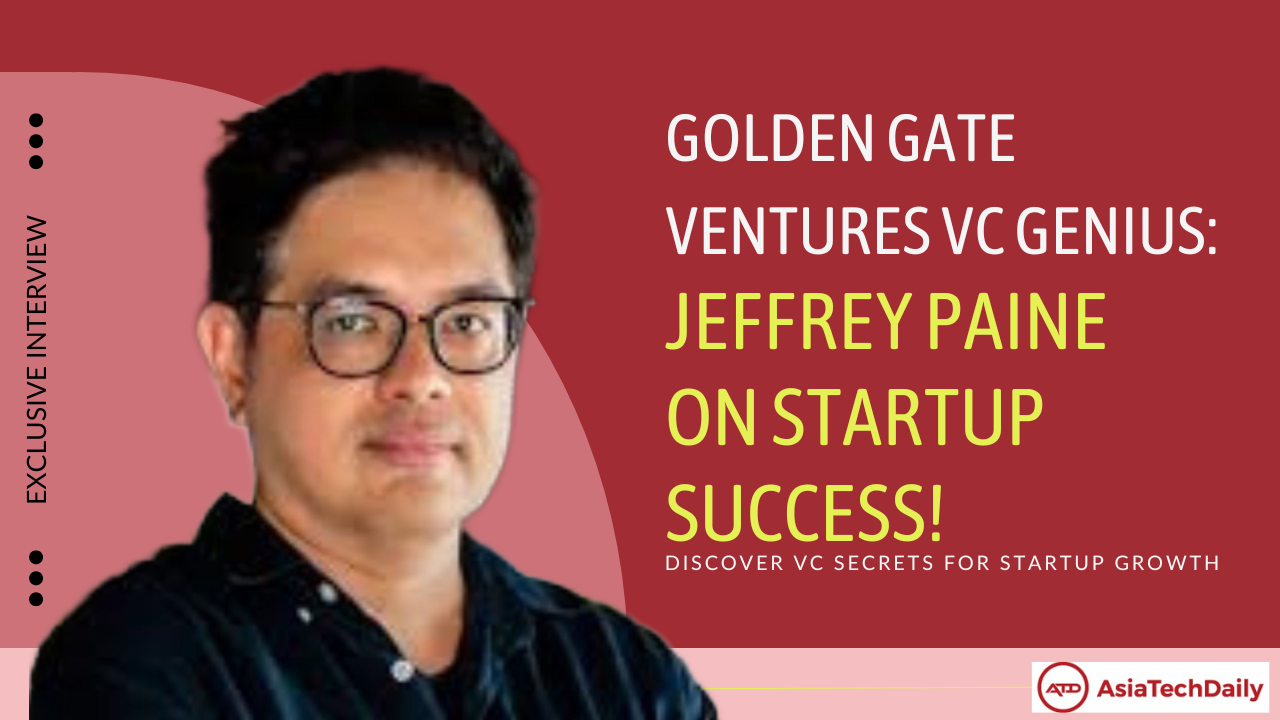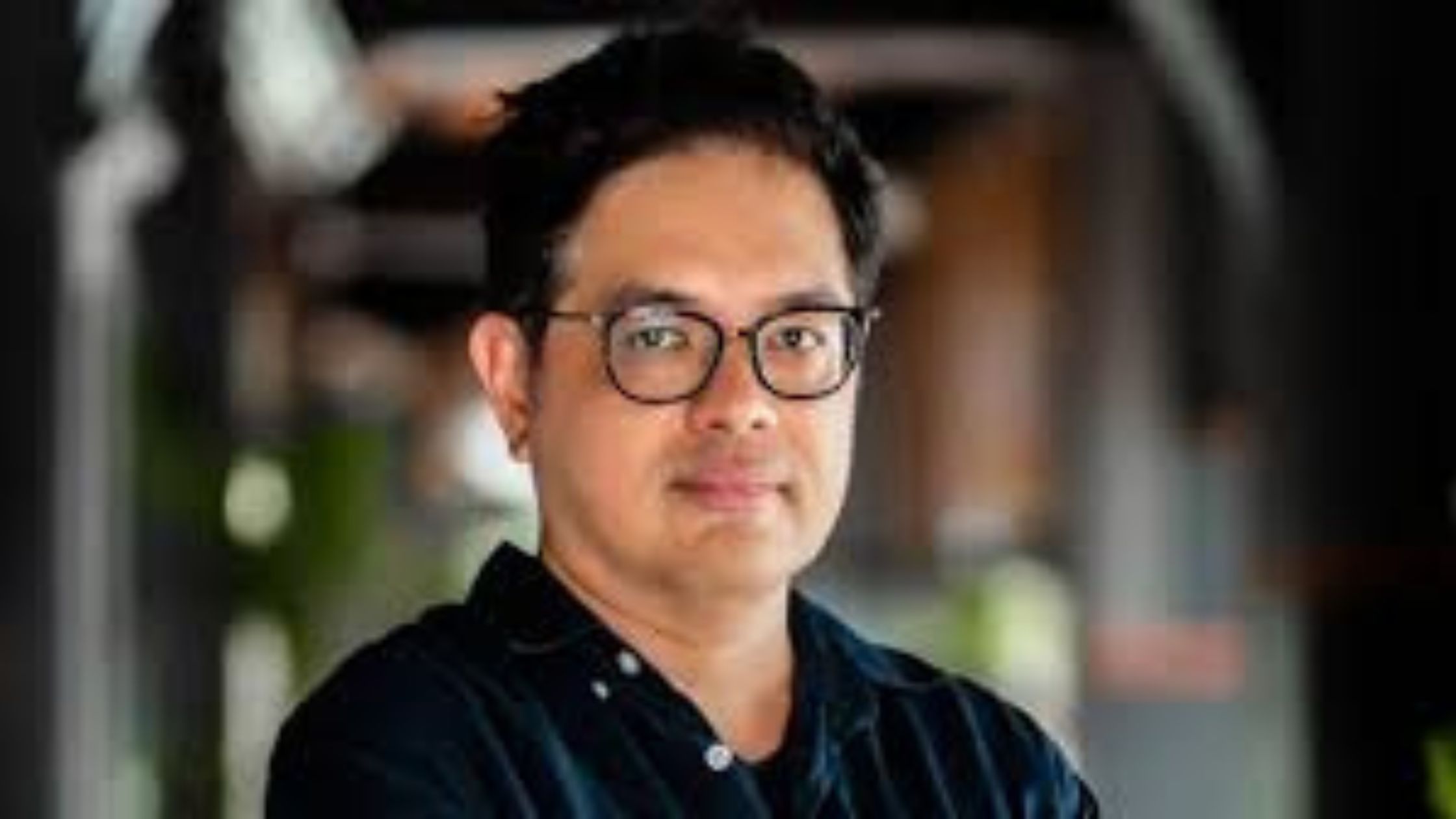AsiaTechDaily – Asia's Leading Tech and Startup Media Platform

Yusuke Asakura, Co-Founder Of Signifiant- Creating Industries To Pass On To Future Generations!
Yusuke Asakura is from Nishimiya, Hyogo Prefecture. After attending a horse racing training center and working on training racehorses, Yusuke received his Bachelor of Laws from the University of Tokyo and joined McKinsey & Company. He then rejoined the company he founded while at the University of Tokyo, Naked Technology Inc., as the President & CEO.
This company exited a purchase by mixi, Inc., and he consequently joined mixi, later becoming the President and CEO and leading the company’s regeneration after a period of stagnation. After leaving mixi, he served as a Visiting Scholar at Stanford University and is now a Visiting Scholar at the National Graduate Institute for Policy Studies. Yusuke also serves as an outside director at Septeni Holdings Co., Ltd., and is a partner at the Tokyo Founders Fund.
Yusuke Asakura is the Co Founder Of Signifiant. Signifiant is engaged in unlisted startups, management support business for newly listed companies.
In an exclusive interview with AsiaTechDaily, Yusuke says:
Signifiant’s purpose is to create industries to pass on to future generations. We aim to drive the following cycle to achieve our mission.
- Solving social problems by pouring capital, insight, and credit into growth companies (Solving social problems)
- Creating industries to pass on to future generations through solving social problems (Creating new industries)
- Sustainably accumulating capital, insight, and credit through creating new industries (Sustainably accumulating assets)
We think that the reason for being of startups is to be the engine to create new businesses. Startups are able to quickly address issues that arise with the changing times through the incentive structure of a business.
In engaging in activities to create new industries, we all have the option to develop our own products & services and grow our own business. We do not exclude that option. But many Japanese growth phase companies trying to achieve growth face the bottleneck of the lack of the key managerial resources that are capital, insight, and credit. We believe that the current times demand that Signifiant makes these resources more widely available.
By supporting the management strategy for growth phase startups, Signifiant aims to create new industries.
Read on to know more about Yusuke Asakura and his journey.
What background and domain expertise do you have?
Yusuke Asakura: I am from Nishimiya, Hyogo Prefecture. After attending a jockey school and working on training racehorses, I received my Bachelor of Laws from the University of Tokyo and joined McKinsey & Company. I then rejoined the company I founded while at the University of Tokyo, Naked Technology Inc., as the President & CEO. This company exited a purchase by mixi, Inc., and I consequently joined mixi, later becoming the President and CEO and leading the company’s regeneration after a period of stagnation. After leaving mixi, I served as a Visiting Scholar at Stanford University and am now a Visiting Scholar at the National Graduate Institute for Policy Studies.
Three co-founders manage Signifiant.
I have experience managing the public company, mixi, CEO, and succeeded in increasing its market cap from \20 billion to \500 billion while being a CEO.
Another co-founder, Kenji, has worked for another notable Japanese public company, DeNA, where he served as a director and executive officer. He worked across the company, from business departments to corporate, including in the social game business, international expansion, HR, corporate planning, and IR.
The other co-founder, Taka, worked at Goldman Sachs, where he gained 14 years of hands-on experience in investment banking departments in Tokyo and London. He worked with companies in many different stages and from many cultures, including Japan, North America, Europe, and emerging countries. He engaged in a variety of investments, M&A, and fundraising, primarily in IT, telecom, internet, media, and consumer & general electronics.
When did you first think about starting a fund?
Yusuke Asakura: On July 7, 2017, two other co-founders and I founded Signifiant. From that point, we have worked together to create new industries by supporting the management of startups in the growth stage, regardless of whether they are public or private.
In the first half of the 2010s, I and Kenji, who were both non-founder executives at mixi and DeNA, respectively and had experienced the rapid growth and difficulties faced by these public internet companies. We frequently discussed the “Second Valley of Death” that many Japanese Post-IPO startups struggle to overcome and how the problem could be solved.
Meanwhile, through the process of engaging in strengthening the competitiveness of the Japanese technology sector as a researcher, engineer, advisor, and investor, Takafumi keenly felt the issues in Japanese companies’ decision-making and governance.
These three people came together to form a team to work on creating new industries from Japan. That was the birth of Signifiant.
What kind of startups/ sectors have you invested in till now?
Yusuke Asakura: We do not designate any particular industry for our investments. So far, we have invested in SaaS, Logistics Tech, HR Tech, AI, FinTech, etc.
What types of companies do you look to invest in? And What’s your mental model for investing?
Yusuke Asakura: We do not designate any particular industry for our investments. If there is potential for a major industry to be created in the long term, and Signifiant can contribute to raising the company’s value, then Signifiant will consider an investment.
Meanwhile, we prioritize management engagement, so we will be especially careful when considering businesses such as those involving R&D, where management improvements may not necessarily lead to company growth.
What is your typical investment range, and how many startups you invest in per year in general? Additionally, can overseas headquartered startups get funding from you?
Yusuke Asakura: We manage a fund named “THE FUND.” THE FUND is not a venture capital fund but a growth capital fund. Both of them are completely different types of funds in nature.
THE FUND invests in private startups with business in the growth stage. This fund mainly focuses on investment in later-stage startups that can expect sustained growth as public companies.
Usually, venture capital funds engage in diversified investment over many startups that have just been established, occasionally making additional investment in those companies at the next round, and generally following a high risk, high return investment style. Asset owners who invest in these types of funds generally expect the shares in the invested companies to be sold quickly after the startup goes public, as venture capital is considered an alternative investment into private equity.
In contrast, THE FUND targets later stage startups for investment, which have a higher certainty of going public. As we also engage with the management, we necessarily must limit the number of invested companies to a few companies. Also, our main approach is to continue management engagement even after the IPO, until the companies are at a stage where they can move forward on their own.
Shareholdings at the time of investment are limited to minority investments. This differentiates our approach from buyout funds, which aim to acquire almost all of the invested company’s shares.
We invest in later-stage private startups. We do not invest in seed or early-stage companies that were recently established.
The following type of startup is a typical investment target for our fund, THE FUND:
- Have already done product/market fit and are doing business
- Already have customers paying for services/products and revenue
- Have already raised funds from external venture capital or other sources multiple times
- In the process of preparing to go public or are exploring the idea in detail
We do not consider if potential investment targets are generating operating profit or losses.
Given that we manage a growth capital fund and engage with management at each of our invested companies, in contrast to venture capital funds that diversify their investments into many startups, we engage in more concentrated investments in a limited number of startups.
More specifically, our general approach is to invest about 2 to 4 billion yen. In principle, we will only invest in startups that can accommodate a minimum of 1 billion yen in investment.
On the other hand, for startups where we can expect to conduct additional investment, then we can set up a framework to invest a smaller amount for the initial investment. We consider individual company circumstances when deciding the investment amount and make these decisions individually after considering each opportunity.
We generally invest in private startups in Japan.
We do not proactively explore investment in startups outside of Japan. Still, we have previously considered overseas startups with a strong connection with Japan, such as their business area or development structure.
What would be the KPI that you usually check about the startups’ growth?
Yusuke Asakura: It may be diverse in each industry like LTV, CAC, MoM, etc. but it will be helpful to understand more about your additional investment factors.
KPI to check should be different for each company.
Meanwhile, we look at the following five elements as our standard for investment:
- Management team
- Intrinsic worth of the business
- Probability of going public
- Financial standing
- Investment conditions
We do not require companies to fulfill all these conditions at a high level. We consider the company’s situation for each of these elements, consider if there is potential to supplement lacking areas in the future, and then make the final investment decision.
As THE FUND places so much importance on management engagement, the most important element for us is the executives and the management team’s intellectual Integrity.
Just as with seed-stage startups, for Post-IPO startups, the ability to grow depends on the top executives’ quality. For this reason, we believe that whether we will be able to have healthy discussions about increasing corporate value with executives is the most important factor.
How do you handle this COVID-19 outbreak situation for your fund’s survival in the future?
Yusuke Asakura: Even after COVID-19, our core principles have not changed in any way.
We are always looking for opportunities to invest in companies of intrinsic value, run by honest management. We also work tirelessly to engage in engagement activities to enhance the value of our investments.
Do you have advice for anyone looking to start a fund?
Yusuke Asakura: It is finding investors who believe in what you are trying to do.
What mistakes do you see founders make when raising money?
Yusuke Asakura: When we see startup managers, we assess the following elements.
Top management (executives)
- Integrity
- Flexibility
- Awareness of own limits
- Intellectual capabilities
- Healthy ambition
- Leadership
Team
- Sufficiency of management functions
- Relationships within the management team
- Organizational management ability
- Execution ability
- Ability to negotiate externally
Regarding Integrity, we often see people who try to hide negative aspects of their business. It is a very bad signal for us. We understand that every company has its weakness. You don’t need to hide it from people who may be your long term partner.
With investment from THE FUND, Signifiant will also engage with the company management team to clarify the management strategy to increase company value. Given our involvement approach, in our investment decisions, we prioritize factors such as management’s openness to a discussion with external parties, flexibility, and intellectual capabilities.
How do you keep yourself motivated every day?
Yusuke Asakura: We are highly motivated by our purpose.
Signifiant’s purpose is to create industries to pass on to future generations. We aim to drive the following cycle to achieve our mission.
- Solving social problems by pouring capital, insight, and credit into growth companies (Solving social problems)
- Creating industries to pass on to future generations through solving social problems (Creating new industries)
- Sustainably accumulating capital, insight, and credit through creating new industries (Sustainably accumulating assets)
We think that the reason for being of startups is to be the engine to create new businesses. Startups are able to quickly address issues that arise with the changing times through the incentive structure of a business.
In engaging in activities to create new industries, we all have the option to develop our own products & services and grow our own business. We do not exclude that option. But many Japanese growth phase companies trying to achieve growth face the bottleneck of the lack of the key managerial resources that are capital, insight, and credit. We believe that the current times demand that Signifiant makes these resources more widely available.
By supporting the management strategy for growth phase startups, Signifiant aims to create new industries.
What are the top- three life lessons that you want your (future) sons and daughters to know?
Yusuke Asakura:
- Be independent
- Have the courage to be disliked by others
- Satisfaction depends on your expectations. Know enough
What would you like to be remembered for?
Yusuke Asakura: I don’t care how other people feel about me, and even whether people remember me or not. In any case, I make my effort to create industries to pass on to future generations.
You can follow Yusuke Asakura here.
Are you looking to secure investment for your startup or a keen startup enthusiast, keep an eye on our interview section.
Follow Asia Tech Daily to know about the innovative startups and how they are revolutionizing the ecosystem.





